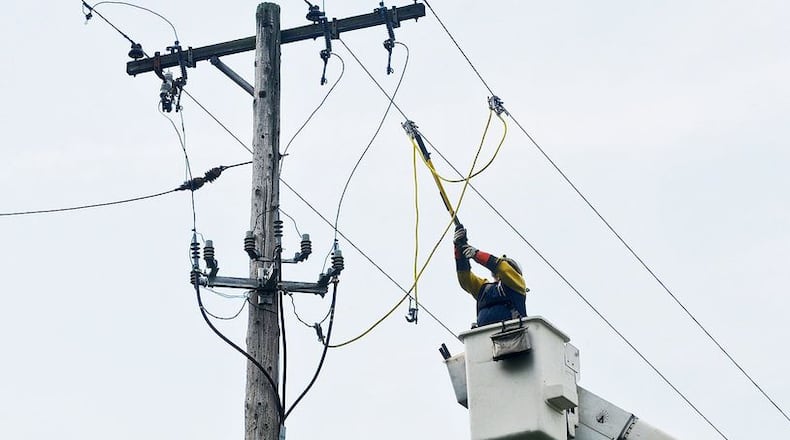In Vandalia, voters approved measures for electric and natural gas aggregation by a 71-to-29 margin.
Vandalia City Manager Dan Wendt said the city had “a strong indication” that its residents wanted to give the city some sort of authority to be able to investigate collective purchasing options that might benefit them financially.
“I think it’s an indication of trust in professional management and professional government, and then also understanding that the city of Vandalia is not going to rush into an aggregation agreement for either electric or gas that isn’t going to come out and have a net benefit,” Wendt told the Dayton Daily News late Tuesday night. “I feel really good about the message that Vandalia City Council put out in the city as a whole, which was we’d like to ask the residents for authority to negotiate. We’d like to make sure that we do that strategically at a time that’s likely to benefit residents.”
That doesn’t necessarily mean Vandalia will take immediate action, he said.
“We will continually study that but we’ll look for a window where we can do that sort of collective purchasing in a way that’s hopefully going to beat the market,” Wendt said.
West Carrollton City Manager Brad Townsend said the city had residents in mind when it put electric aggregation choice on the ballot.
“We are pleased with the outcome and the confidence the voters have entrusted to us,” Townsend said.
West Carrollton City Council will consider legislation in the coming months to join with other communities and the Miami Valley Communications Council to formally establish the electric and natural gas aggregation programs, he said.
“It is anticipated that rates will be negotiated in the first quarter of next year as soon as the MVCC programs have been approved by the PUCO and utilities put their respective programs out to bid,” Townsend said.
Aggregation explained
Aggregation measures are meant to give Ohio consumers the opportunity to choose their electricity generation suppliers — where their energy comes from. Under aggregation, a community entity negotiates with suppliers on behalf of eligible households, nonprofits and small businesses to save money on bills by grouping together.
Also, under most aggregation programs, home and small business owners have the opportunity to opt out.
The price of electricity has risen nationwide, and inflation, natural gas cost increases, supply chain problems and other issues — like growing post-pandemic demand for power — are complicating factors, officials have said.
As of June 1, AES Ohio’s price became 10.91 cents per kilowatt-hour (kWh), up from its “standard offer” price of 4.805 cents. A kilowatt-hour is how much energy you need to run a 1,000-watt appliance for an hour. A 100-watt bulb takes 10 hours to use a kilowatt-hour of energy. A 2,000-watt appliance takes 30 minutes.
Election Night results
MONTGOMERY COUNTY
Clayton, electric aggregation: 69% yes, 31% no
Englewood, electric aggregation: 69% yes, 31% no
Englewood, natural gas aggregation: 70% yes, 30% no
Riverside, electric aggregation: 58 yes, 42% no
Riverside, natural gas aggregation: 58% yes, 42% no
Trotwood, natural gas aggregation: 59% yes, 41% no
Trotwood, electric aggregation: 58% yes, 42% no
Vandalia, natural gas aggregation: 71% yes, 29% no
Vandalia, electric aggregation: 71% yes, 29% no
West Carrollton, electric aggregation: 66% yes, 34% no
GREENE COUNTY
Greene County, natural gas aggregation: 65% yes, 35% no
Bowersville village, electric aggregation: 71% yes, 29% no
Bowersville village, natural gas aggregation: 71% yes, 29% no
Clifton village, electric aggregation: 80% yes, 20% no
Clifton village, natural gas aggregation: 80% yes, 20% no
MIAMI COUNTY
Miami County (all unincorporated except Newberry), electric aggregation: 63% yes, 37% no
Miami County (all unincorporated except Newberry), natural gas aggregation: 63% yes, 37% no
WARREN COUNTY
Waynesville, electric aggregation: 74% yes, 26% no
Waynesville, natural gas aggregation: 74% yes, 26% no
About the Author

